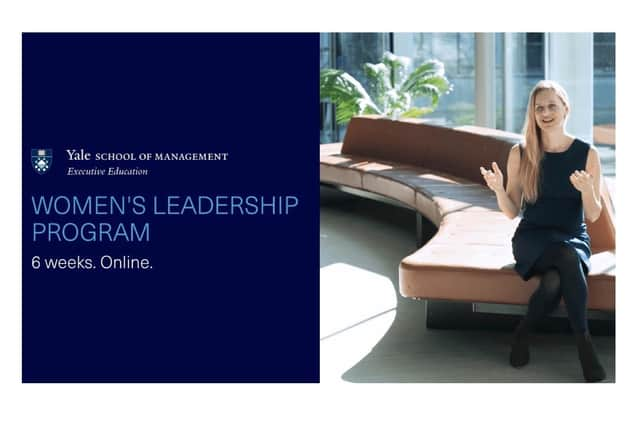Female leaders still need to navigate 'glass ceilings and old boys' clubs', says Yale School of Management expert


Women remain underrepresented in leadership positions globally - but why?
The question is especially pertinent as International Women’s Day (8th March) encourages everyone to #ChoosetoChallenge the status quo.
Emma Seppälä - who heads up the Yale School of Management (SOM) Executive Education’s online Women’s Leadership Program identifies a number of deep-rooted external factors that require navigation.
“There are the obvious glass ceilings and old boys' clubs that still remain in place, notably in top leadership positions,” she says. “A quick overview of the gender divide at senior executive level will show you that this is true in the UK, US and many other places in the world. This may also be exacerbated in certain professions such as banking.”
Seppälä continues`: “The obvious factors of child-bearing and care-taking also play a significant role. Often, businesses are not set up to support women in those roles so women need to opt out of professional advancement to care for their families. There is less room for a woman to grow into her full potential as a leader. The irony is, however, that women tend to score higher on most leadership skills than men. Emotional intelligence, which also tends to be particularly strong in women, is a key skill, especially at this time.”
The online Women’s Leadership Program led by Seppälä and Rodrigo Canales, Associate Professor of Organisational Behaviour at Yale School of Management, is targeted at individuals who want to develop their full professional potential as leaders in society.
It starts with the premise that in order to succeed, women need to learn to both navigate the external factors that are hindering their access to leadership positions - and the internal factors that lie within themselves.
The program addresses emotional intelligence in detail: “Through exploration of values-based leadership and emotional self-mastery, students strengthen their emotional intelligence, their understanding of individual strengths, and learn to harness creative thinking to maximize the capacity for business innovation and problem-solving,”says Seppälä.
But what about that second key area highlighted, the “internal factors that lie within themselves"?
“Women are hard on themselves in many cases,” argues Seppälä. “A woman and a man who are equally qualified for a position or promotion will have different reactions to the opportunity. While the man will tend to self-promote and go for the opportunity, the woman may think she does not have the skills needed.”
Yale SOM Executive Education’s online Women’s Leadership Program also emphasises the importance of building a successful support network.
“Research shows that a network of support can give women greater confidence in the workplace,” says Seppälä. “Moreover, mentorship and sponsorship can play a very large role in advancing a woman's career (and anyone's career). Seeking out mentors and sponsors but also establishing organisational norms for mentorship and sponsorship can help tremendously.”
Seppälä says the coronavirus pandemic has shone a favourable light on some exceptional global women leaders.
“I think we've seen that during the pandemic, countries led by women (notably Jacinda Ardern in New Zealand, Sanna Marin in Finland and Angela Merkel in Germany) have fared very well and successfully - those are some good examples of excellent leadership by women,” she says.
The online Women’s Leadership Program aims to equip existing and aspiring leaders with the confidence, self-awareness, and networking skills to effectively lead their teams and organisations.' It promises to deliver insights into the behaviors that have the potential to shape future business, as well as leadership skills to effect positive change within organisations. The program would also benefit middle and junior managers looking to gain personal and professional leadership development in order to prepare to move into a senior or executive management role.
The nature of the online program sees students join a like-minded global network of current and aspiring leaders where the support benefits extend beyond the course itself.
Yale School of Management Executive Education offers a portfolio of programs to promote women, delivered through a variety of formats which meet women where they are, including on campus, live online and online.
Find out more and register today for Yale School of Management Executive Education’s online Women’s Leadership Program.